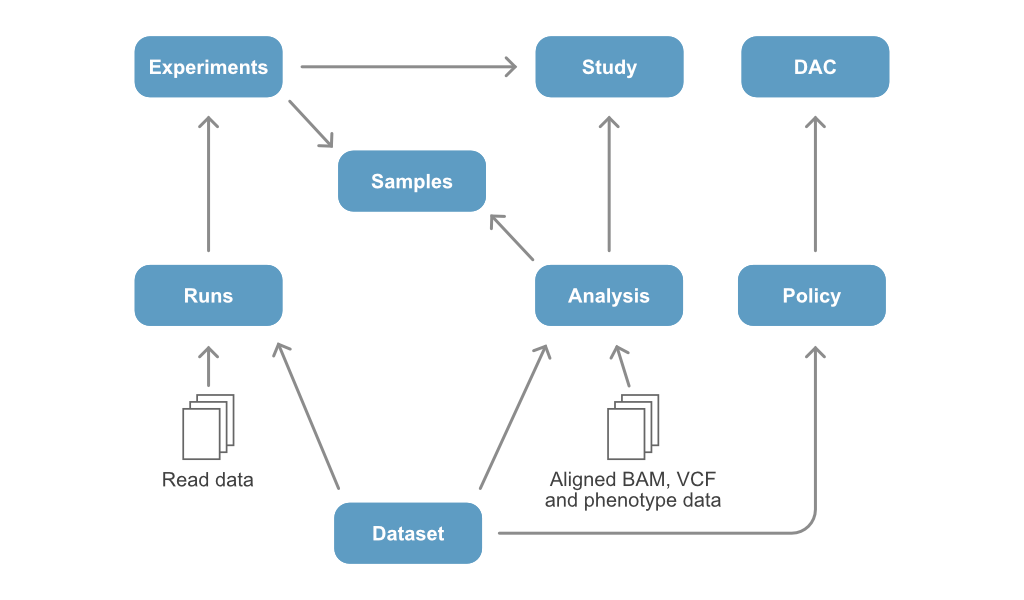Metadata overview
Why is metadata important?
Data submitted to FEGA Sweden must be described with proper metadata. Well described datasets are easier for other researchers to find and reuse.
It is good practice to have a plan for collecting and keeping the metadata already at an early stage in a research project. Here are some examples of what can happen if you don’t have a plan for your metadata:
- You fail to understand your data because critical metadata got lost when a colleague moved to a new job and forgot to hand over the metadata to you.
- You need to spend more time collecting the metadata because you forgot where to get it from.
- You cannot deposit the data into a public repository because you forgot where you put the metadata.
- The publication of your scientific results is delayed because some metadata is missing (the journal may for example demand you to deposit data in a repository that requires metadata that you don’t have access to).
- Another researcher cannot use your data because you forgot to collect some critical metadata (e.g. about how an experiment was done or the conditions for using the data).
The metadata model
The metadata in FEGA Sweden is divided into eight major categories (see figure below). Submitted data files are connected to either the “Runs” or the “Analysis” category. You can prepare most of the metadata before you start working on the actual submission. Well-prepared metadata will facilitate the future processing of your submission.
Some general advice on metadata management
- Keep the metadata in a single location. Consider storing the metadata close to your data files (but in a separate folder). Make sure that files are backed up regularly so that you don’t lose important information.
- Keep your metadata files organised. Decide on one file naming convention and stick with that. Also make sure to document your metadata files. A simple README file that describes the files is normally sufficient.
- Clarify responsibilities in your team when it comes to collecting and keeping the metadata.
Where should I start?
We know that it can take time to prepare the metadata. To help you on your way, we have put together information about the metadata categories that we think will be the most valuable to prepare early:
